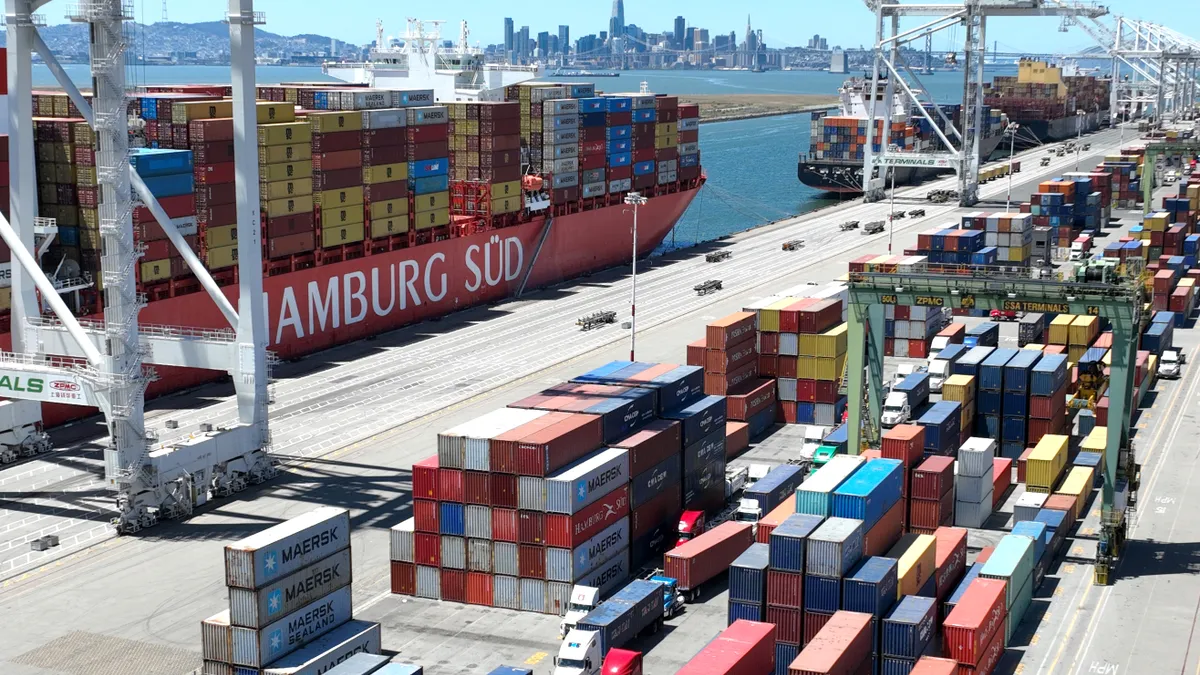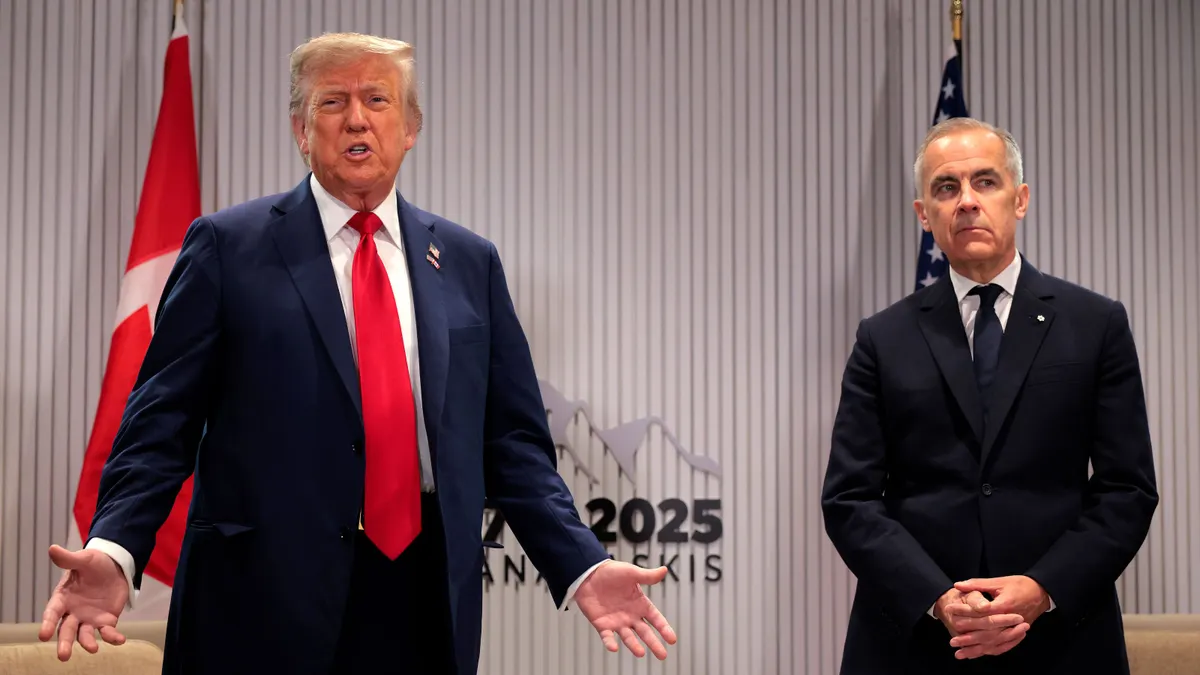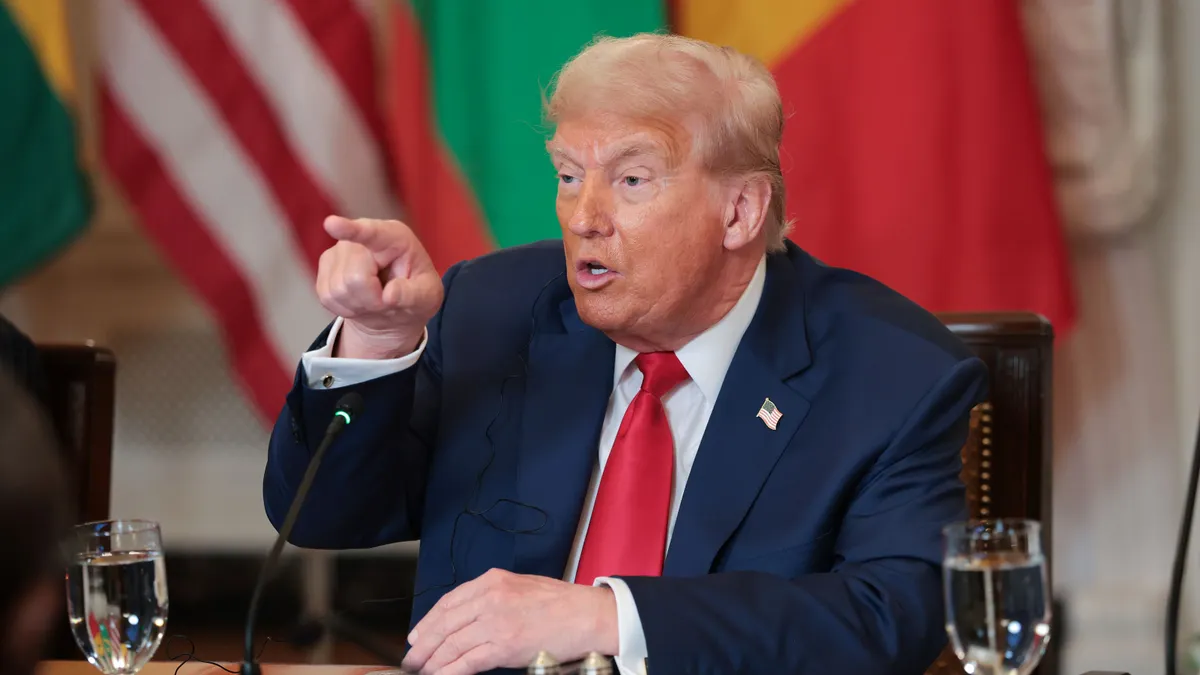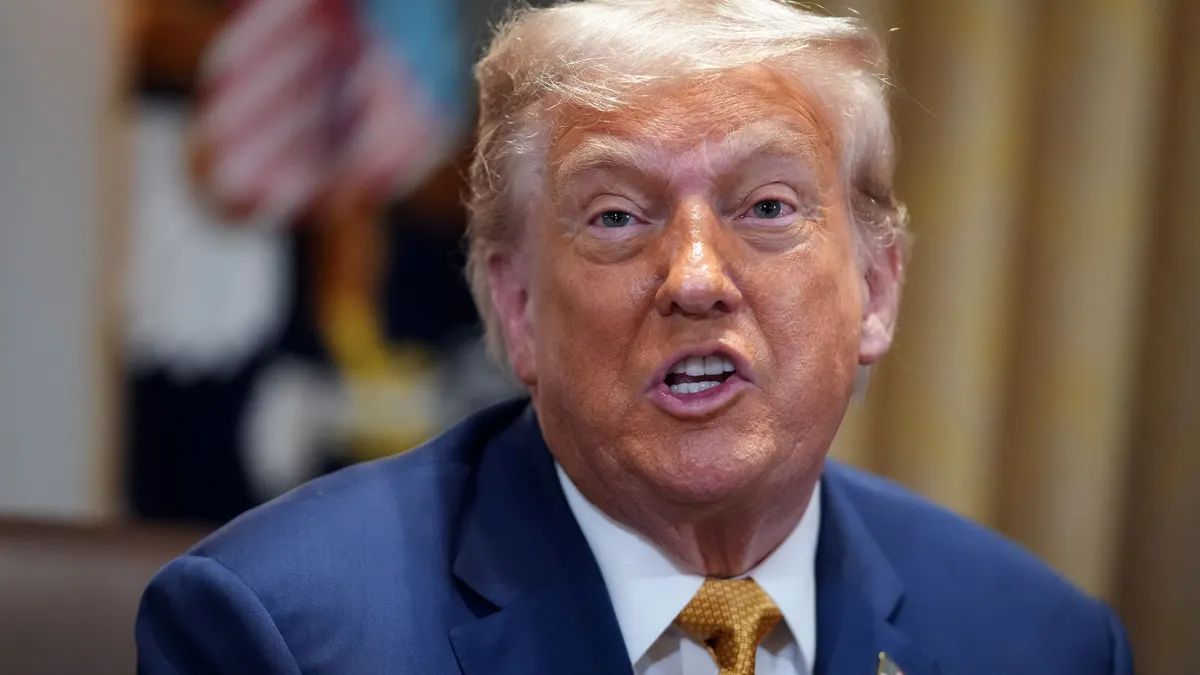The Biden administration will focus on "re-aligning" the United States' relationship with China and addressing worker rights in global supply chains, according to the U.S. Trade Representative's report on 2023 policy.
“China, as a large, non-market economy, is uniquely able to distort the marketplace through unfair, anticompetitive practices, which harm workers and businesses in the United States and in other countries, including some of our closest allies and partners,” the USTR said in the report.
The report made note of the Biden administration’s continuation of Section 301 tariffs launched under Trump on scores of imports from China. In December, the USTR extended exclusions on those tariffs for another nine months — a signal that the tariffs will continue for the foreseeable future.
And there may be more action to come. “We are also considering all existing tools — and will potentially seek new ones as needed — to combat the harms of China’s state-led, non-market practices,” the report said.
Beyond tariffs, the White House has also worked to advance a policy that prioritizes domestic investments in U.S. infrastructure and manufacturing "to engage and compete with China from a position of strength." The U.S. has worked to invest in technology manufacturing through new investments and legislation like the Infrastructure Investment and Jobs Act.
A new era for trade deals?
Across many industries, attention and talk has turned toward moving more production out of China. That is a process that began with import tariffs launched under the Trump Administration and was accelerated with the pandemic.
The discussions and sourcing moves come as both corporate leaders and politicians have become more focused on supply chain resiliency than they have in decades.
“There is a bit of a paradigm shift, that for the last few decades anyway we have been very focused on efficiency — the efficiency of supply chains and the lowest cost supply chains, just-in-time and the like,” Michael Froman, a former U.S. Trade Representative and current president and vice chairman for strategic growth at Mastercard, said at a summit last week held by the American Apparel & Footwear Association.
“Efficiency is not the only goal of trade,” Froman added, pointing to security and supply chain redundancy as other imperatives. He also noted that despite the talk of “decoupling” from the world’s largest exporter, “we are trading with China more than ever before.”
The Biden administration has been pushing trade deals with allies to challenge China's economic dominance and advance goals around sustainability and workers rights.
The USTR report noted the Indo-Pacific Economic Framework for Prosperity, launched in May 2022, “will be a model for the rest of the world” in part by focusing on supply chain resilience, decarbonization and infrastructure. It also highlighted its Americas Partnership as well as bilateral negotiations with Taiwan and Kenya.
Froman and another former USTR official, Susan Schwab, currently a strategic advisor with Mayer Brown’s international trade practice, said that the new norm for trade deals could include “plural-lateral” agreements among narrower groups of countries. These could allow for more stringent rules around trade, including around broader issues such as sustainability.
“You are either following the rules or you are not going to be part of the [agreement],” Schwab said.
Workers' rights in focus
The USTR also noted in the report that the Biden administration has been advancing a “worker-centered trade policy.” To date this includes actions such as requesting Mexico to review a factory where unions said workers were denied the right to freely assemble, and numerous other areas where the government is digging deeper into the problem of forced labor.
President Joe Biden, in his annual report to Congress on trade policy, tied those actions back to creating a level playing field for U.S. workers. The administration also called out China for failing to “provide its people with the most basic of labor rights,” as well as for artificially low wages and poor worker protections, which historically has held down operating costs and lured in corporate buyers from around the world.
The report made similar arguments around China’s environmental policies, noting the country is “a manufacturing destination of choice for production processes that would be barred in other countries.”






















